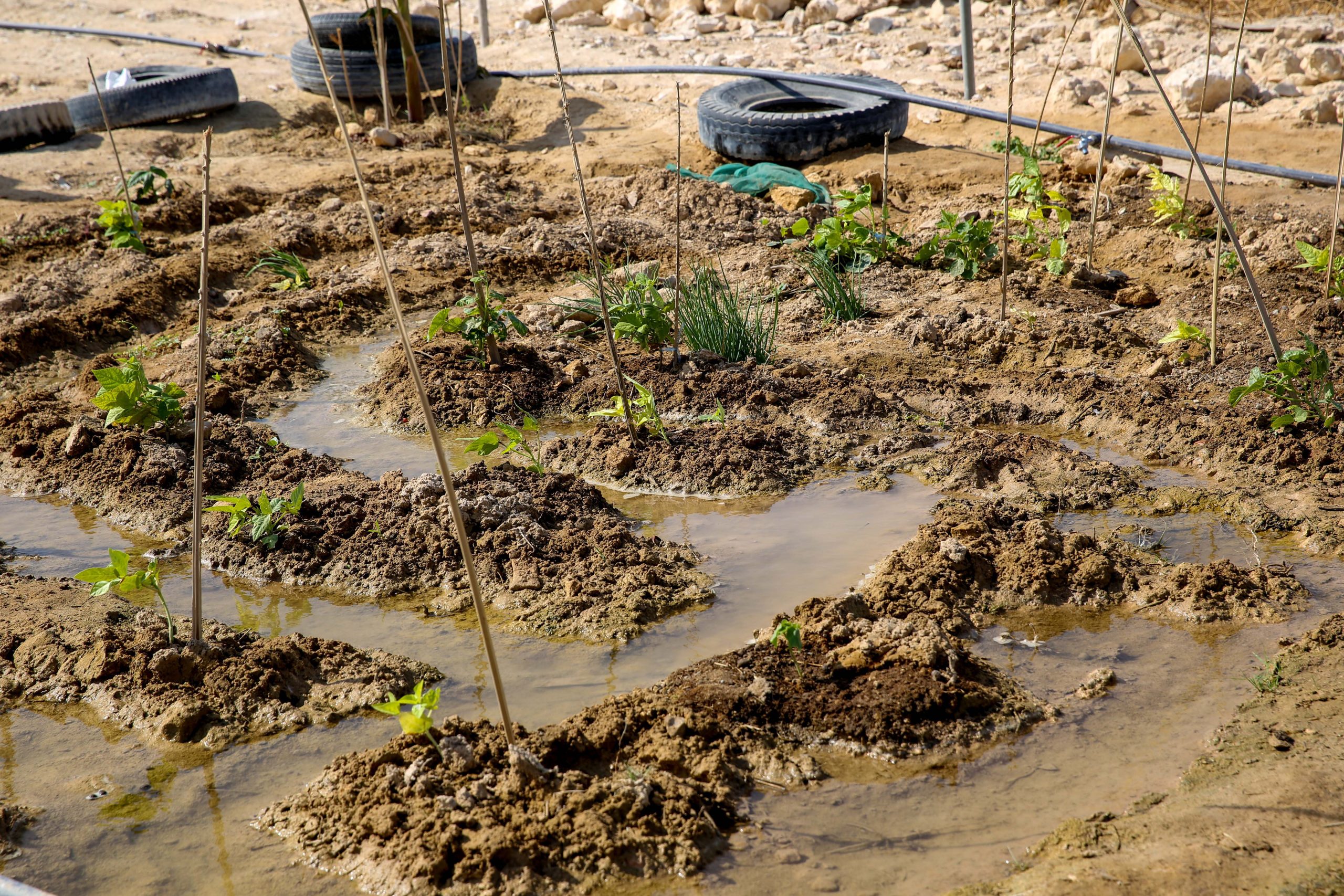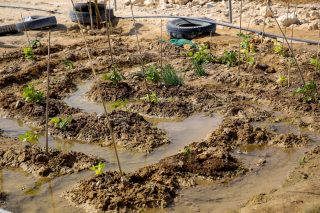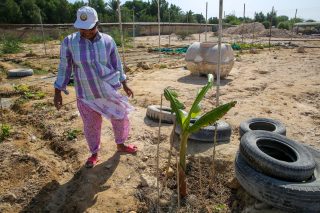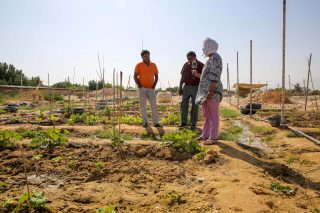All photos by Chantelle D’mello
While most Qatar residents’ eyes are drawn to Doha’s skyline, now bursting with cranes and skyscrapers, Ambhara Pavithran prefers to set her sights on the ground.
Along with two other residents – Jisha Krishnan and Meena Philip – the 52-year-old is working to cultivate Qatar’s first rice paddy, no small feat given the country’s merciless weather and arid land.
The trio are co-founders of the local chapter of Adukkalathottam (kitchen garden), a Facebook group that encourages organic farming among Keralites all over the world.
With a current membership of some 600 local residents and over 30,000 worldwide, the page, written almost exclusively in the Malayalam language, is a sounding board for one of the most ambitious agricultural endeavors in Qatar.
The Gulf state imports more than 90 percent of its food, and has working in recent years to boost its food security.
Beginnings
The idea of growing rice in Qatar was raised earlier this year, when the group held their first meeting in April to gauge local interest in organic farming.
At the time, some 250 members gathered at the Al Dosari Zoo and Game Reserve over 25km from Doha to discuss ways to begin farming on a larger scale.
Most members had prior experience in growing crops, with housewives cultivating their own tomatoes, potatoes and beetroots in their kitchens, terraces, and verandas.
Speaking to Doha News, Pavithran explained:
“We didn’t think so many people would show up. At the time of the meeting, we invited Mr. Mohammed Al Dosari, who owns the place, to attend. He expressed interest in organic farming after seeing what the group was about. He suggested giving us a portion of his plot to try to grow vegetables, grains, and pulses locally, and we went ahead from there.”
Following the initial meeting, the trio and their families began looking into ways to make the 2833 sq. m plot of land they had been provided fit for agriculture.

“This is our passion,” said Pavithran. “In Kerala, we all grew up around farming, so we’re trying to bring that back here, and recreate it in our new home.”
The first step involved preparing the soil to sustain plant life. Slightly acidic, the soil was neutral with a mixture of manure and water, bringing it to an optimal pH level.
The women then bought 10 bags of special German soil from nurseries around the Wholesale Market to replace the dry sand. Once the soil was put in place, they hired workers to plough the land.
A month after the scorching summer came to a close, the women held another general meeting on Sept. 19 to discuss what kinds of plants to sow in the newly ploughed field.
The answer came back unanimous – rice.
Challenges
The next day, the Keralite Minister of Agriculture – who was already in town for another event – inaugurated the plot of land and planted the first rice seeds. The group sourced three varieties of rare “heritage seeds” of paddy from a collector in Kerala for use in the project.
Currently, around 20 percent of the prepared farmland is dedicated to paddy. The women have also planted string beans; ash, bitter, and bottle gourd; lettuce; tapioca; radish; beetroot; pumpkin; banana; and green pepper plants, most of which have already begun flowering.

Despite the group’s success, the two-month long project has not been without its challenges.
The paddy is first grown in flat troughs indoors until the seeds germinate. Then, it is transplanted to the paddy fields where they are required to be submerged in water at all times. The first time that the paddy was transplanted, the seeds didn’t grow past the stage; the second time, the birds ate up the nascent crops.
However, the group does get free water – to the tune of 400 gallons a day – and manure for their plants, courtesy of Al Dosari.
Additional challenges include the ever changing weather – too much wind or too much heats poses a threat to the plants.
Come summer, the project will have to be shut down, unless the trio manages to raise the QR100,000 required for a polyhouse, a temperature-controlled polyethylene dome that protects crops from extreme heat and humidity.
The project is also increasingly time-intensive. Pavithran, a housewife, spends five hours during the weekdays, from 7am to noon, and 12 hours on weekends, from 7am to 7pm, at the field. The other women, also homemakers, spend equal amounts of time tending to the plants.
During the weekends however, numerous members from the Facebook group drive out to the game reserve to lend a helping hand.










